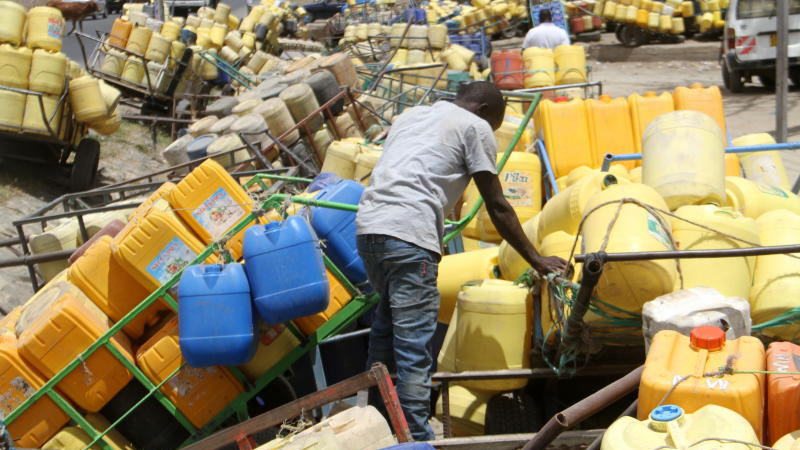×
The Standard e-Paper
Fearless, Trusted News

Long queues of neighing donkeys and hard cart pullers along Namanga Road with their mountains of yellow water containers are a sign that one is just to enter Kitengela.
On a busy day, an estimated 100 water tankers will be crisscrossing every village path in the expansive, densely populated town, raising thick clouds of dust in desperate race to quench the thirst of the estimated 1.5 million people in Kitengela, Kajiado and Isinya towns.